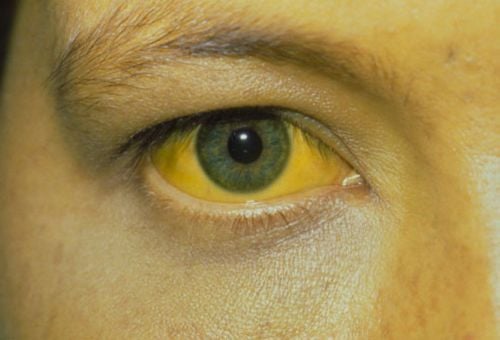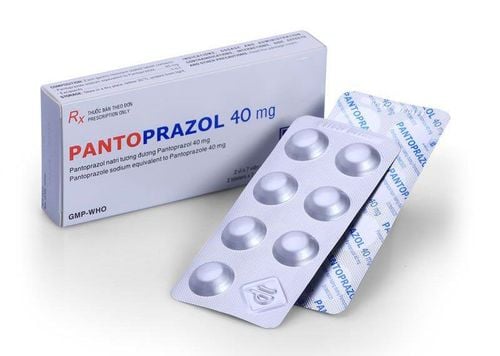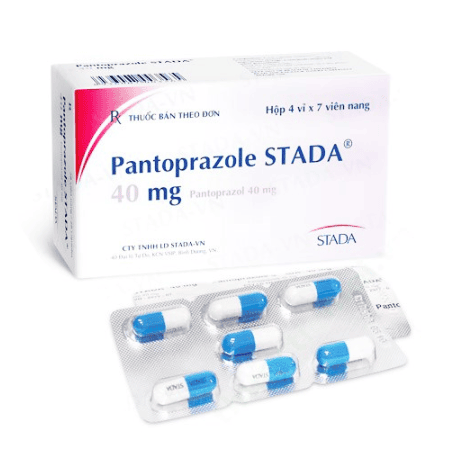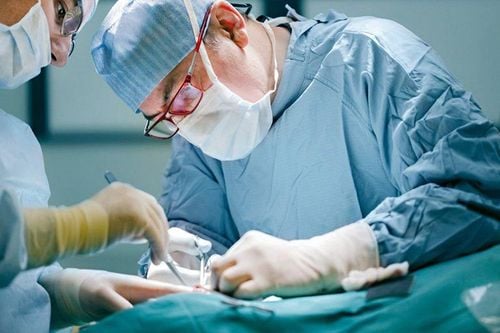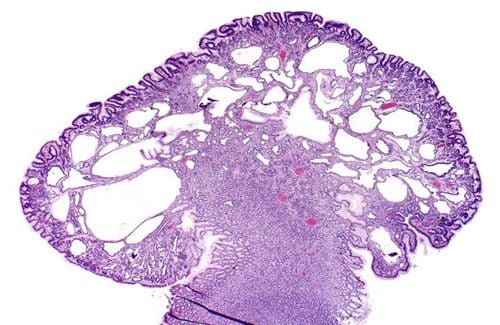This is an automatically translated article.
Stomach cancer is the most common gastrointestinal cancer and also the second most common cause of cancer death. Learning who is more likely to get stomach cancer and how to prevent it will reduce your risk.
1. Who is prone to stomach cancer?
Stomach cancer is the most common gastrointestinal cancer, the 3rd most common cancer and also the 2nd most common cause of cancer death. Cancer cells in the stomach grow into large tumors that damage the stomach. At the same time, these malignant cells also have the ability to spread to other organs such as the peritoneum, liver, pancreas, ... and form a cancerous mass there called metastasis.
People with stomach cancer are usually between the ages of 40 and 60. Although it is not known exactly what causes stomach cancer, there are many risk factors, such as:
Male gender: Men are twice as likely to get stomach cancer than women . Age: People between the ages of 40 and 60 have the highest risk of stomach cancer. People under the age of 40 have stomach cancer only a small percentage. Genetic factors: If you have a close family member such as a father, mother, brother or sister with stomach cancer, then you are 2-4 times more likely to develop the disease than others. Currently, no specific chromosomal or genetic cause has been found. These risk subjects need to be examined periodically to screen and detect the disease early. Have a history of stomach disease: People with a history of stomach diseases, even benign diseases, are also more likely to develop stomach cancer than the general population. Conditions that increase the risk of stomach cancer include: People who have had a gastrectomy due to a previous gastric ulcer or perforation, people with gastric polyps, people with peptic ulcer disease or aplastic gastritis . Blood group A: Although no link has been found between blood type and stomach cancer, people with blood type A have a higher rate of disease than other blood types. Helicobacter pylori (H.P) infection: Helicobacter pylori (H.P) bacteria live under the mucous layer of the gastric mucosa, close to the epithelial cells but do not invade the tissue. H.P. bacteria can survive in the acidic environment of gastric juice and produce enzymes such as protease, catalase, and exotoxins. These substances damage the stomach lining, causing stomach ulcers or peptic ulcers. Therefore, Helicobacter pylori infection is thought to be associated with gastric cancer. Up to 65-80% of gastric cancer cases are related to H.P. People infected with H.P. bacteria have a 2 to 6 times higher risk of stomach cancer than other people. Obesity: Obesity is also a risk factor for stomach cancer. Although the pathogenesis is still unclear, statistics have shown that obese people have twice the rate of stomach cancer compared to non-obese people. Diet: Diet is also considered a risk factor for stomach cancer. Eating too much salt, eating red or processed meats, eating a lot of smoked, roasted, grilled or pickled vegetables all increase the risk of stomach cancer. Habits of drinking, smoking: Drinking alcohol, smoking or pipe tobacco will irritate the stomach lining, which can lead to damage such as stomach ulcers or stomach cancer. Specifically, smoking increases the risk of stomach cancer by up to 40%, even up to 82% for heavy smokers compared to non-smokers. Some studies also show that alcoholics have a higher rate of stomach cancer. Some other risk factors for stomach cancer such as: People living in Korea, Japan, some countries in Eastern Europe and Latin America; people with low socioeconomic status are more prone to stomach cancer; Exposure to toxic substances in the environment such as coal dust, nickel and asbestos, etc. also increases the risk of stomach cancer.
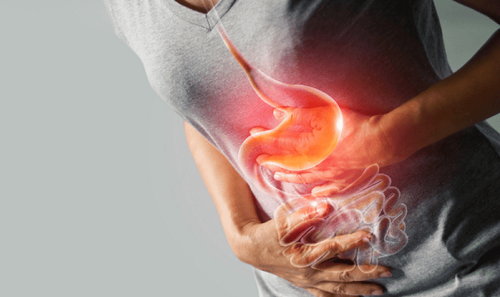
Người bị ung thư dạ dày thường nằm trong độ tuổi từ 40 đến 60 tuổi
2. Symptoms of stomach cancer
People with stomach cancer often have the following symptoms:
Feeling discomfort or pain in the epigastrium; Nausea, vomiting and loss of appetite, loss of appetite; Vomiting blood or passing black stools ; Indigestion, flatulence, heartburn; Stomach distended after eating, even if only eating very little; Difficulty swallowing, which can be seen in the case of a cancerous mass in the stomach near the esophagus; Constantly feeling tired, losing weight for no apparent reason.
3. Methods of diagnosing stomach cancer
There are many tests to help diagnose, stage the disease as well as help predict the stomach cancer.
3.1. Stomach cancer diagnostic tests Your doctor will use the following tests to diagnose stomach cancer:
X-ray of the stomach with contrast (by drinking a glass of barium water). Currently, this method is less popular and has been replaced by gastroscopy. Gastroscopy helps to diagnose the disease early and most accurately. Endoscopy uses a small, lighted tube inserted into the stomach through the mouth, which can be numbed to relieve pain before the endoscopy. Gastroscopy is a method that helps the doctor get closest to the lesion, can easily biopsy a small sample of the tumor for pathology. Through biopsy tissue samples can determine the pathological nature of the tumor. 3.2. Tests to diagnose the disease stage and prognosis After the disease has been diagnosed, the following tests should be performed to diagnose the disease stage and prognosis:
PET - CT scan of the chest, abdomen, pelvis or whole body to confirm the diagnosis. determine invasion to nearby organs or metastasis. This helps the doctor to accurately determine the stage of the disease and guide the treatment. Gene amplification test, find and analyze mutations in cancer to provide treatment direction and choose the right drug.

Hút thuốc lá hay thuốc lào làm tăng nguy cơ bị ung thư dạ dày
4. How to prevent stomach cancer
To prevent stomach cancer, it is necessary to do the following:
Annual health check-ups for early detection and timely cancer treatment; Go to the doctor as soon as you have symptoms of stomach disease and adhere to the treatment regimen; Treatment of Helicobacter pylori infection according to the right regimen significantly reduces the risk of stomach cancer; Exercise regularly and regularly to exercise health and control weight; Limit red meat, salty foods and processed foods. Instead, the diet should have a lot of shrimp, fish, vegetables, fruits; Do not drink alcohol; Do not smoke tobacco and pipe tobacco; Carry out labor protection according to standards when working in a hazardous environment. For example, to avoid exposure to coal dust, coal miners must wear protective masks. In summary, gastric cancer is a common disease, causing high mortality, but the cause of the disease is unknown. Therefore, understanding who is susceptible to stomach cancer and how to prevent it will reduce the risk of the disease. In case there are signs of suspicion of stomach cancer, the patient should go to a medical facility for examination and accurate diagnosis.
Please dial HOTLINE for more information or register for an appointment HERE. Download MyVinmec app to make appointments faster and to manage your bookings easily.




